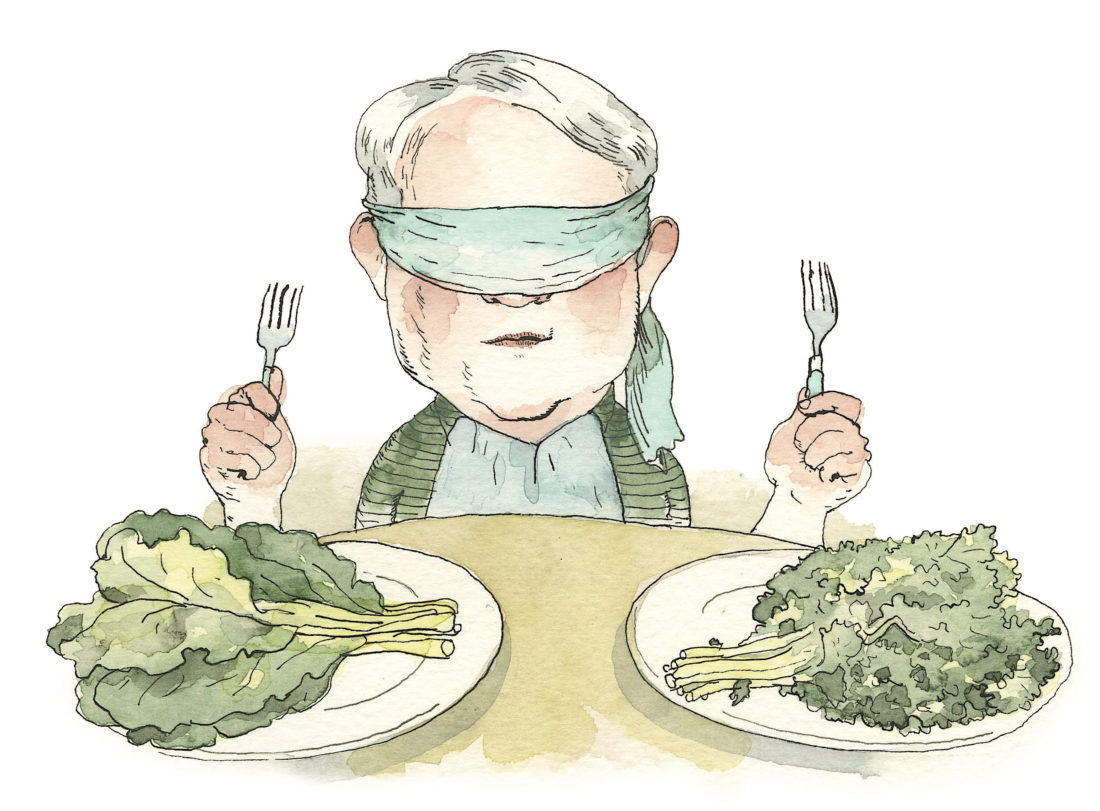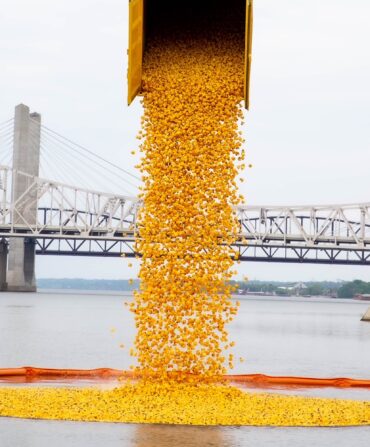Deep within the nature of things, there are dualities: yin and yang, garden and gun, rain and shine, body and soul, to and fro, 1 and 0, being and nothingness, rock and roll, collards and kale.
Collards are flat-out, kale is frilly. Collards go with pig meat (or smoked turkey), kale with tahini. Kale is for people who want to get ahead in today’s skinny business world, and it makes a nice garnish. But it was collards that Thelonious Monk wore a sprig of in his lapel.
Try this quiz:
(1) In the first two paragraphs of her story “A Stroke of Good Fortune,” Flannery O’Connor mentions collards five times. What if, instead, she had gone with kale?
(a) That would have been impossible, because kale was not invented until ten years after the author’s death.
(b) The story would be brighter, breezier, healthier. Possibly set in Vermont.
(c) If a “gritty kale leaf” were stuck to Ruby’s cheek, it would not be gritty, and might be an affectation.
(d) You can’t hold most people’s attention that long with kale.
(2) Kale is singular, collards plural. Why?
(a) There is no such thing as a collard, nor some kales.
(b) Kale is like lettuce, cauliflower, a turnip. No one ever says “kale greens.” You can make a smoothie with kale. Collards is greens.
(c) It just seems like that’s how it ought to be. Right?
(d) Either way, you need a mess of them. And yet, does anybody ever say “a mess of kale”?
(3) The Middle English word for both collards and kale was colewort. Really?
(a) Middle English people’s thinking was backwort (ha!), compared with ours. They apparently did not realize that wort is funny. Or maybe they did, and were glad of it. Or maybe they did, and didn’t care. Some other worts: bishop’s wort, blue navelwort, lustwort, sneezewort.
(b) On the contrary, those people may have been forward-looking. They may have anticipated coleslaw.
(c) Even the Middle English, you’d think, would have realized how much more swinging and rhyme-friendly collard greens is than colewort.
(d) Is there a regional angle here? Cole Porter, who was from Indiana, is associated today with very few songs related to food. Whereas Nat King Cole, from Alabama, recorded “Riffin’ at the Barbeque,” “Patty Cake, Patty Cake,” “The Frim Fram Sauce,” “Solid Potato Salad,” “Candy,” “Peaches,” and “Save the Bones for Henry Jones.” However, neither of them recorded anything concerning collards or kale. (Or, incidentally, coleslaw. “Cole Slaw” was recorded by Louis Jordan, from Arkansas; Lou Donaldson, from North Carolina; and Jesse Stone, from Kansas, but his grandparents were from Tennessee.)
(4) Well, who did record a song about collards or kale?
(a) Bud Powell (born in Harlem): “Collard Greens and Black-Eyed Peas.”
(b) Bill Coday (born in Coldwater, Mississippi): “Her Love Is Good Enough to Put in Collard Greens.” Which includes this lyric:
If you’ve been with my woman,
You know just what I mean…
The stuff she’s got,
It’s better than streak-o’-lean.
(c) You can Google “songs about kale.” They are about what you would expect. One, as performed, features way too much melisma. If you ask me-ee-ee-ooooy-ee-yi-oo-eeee.
(d) All of the above.
Answers: (d), (d), (d), (d).
On the other hand.
Dualistic thinking can divide us. And far too much of that is going around. Any day now, we may start seeing bumper stickers saying, “Civil War! What Could Possibly Go Wrong?”
After all, collards and kale are both packed with nutrients. Folks have in fact cultivated and cooked both of them, over the years, without making an issue of it.
So. I mixed equal amounts of kale and collards (though of course the kale’s crinkles made it look bigger) and cooked them in a pot with a ham hock and dashes of vinegar and barbecue sauce and other things for forty-five minutes. The collards came up strong: chewy enough to hang in there and slick enough to slip on down. And the potlikker! (Because of the way potlikker is spelled, people may associate it with, like, gutbucket. Not that such an association would be distasteful, but it would be misleading.) The potlikker was smooth and rich like Lou Donaldson on the saxophone. (So that’s why we got off into coleslaw.)
As for the kale? I don’t know where the kale went to.








